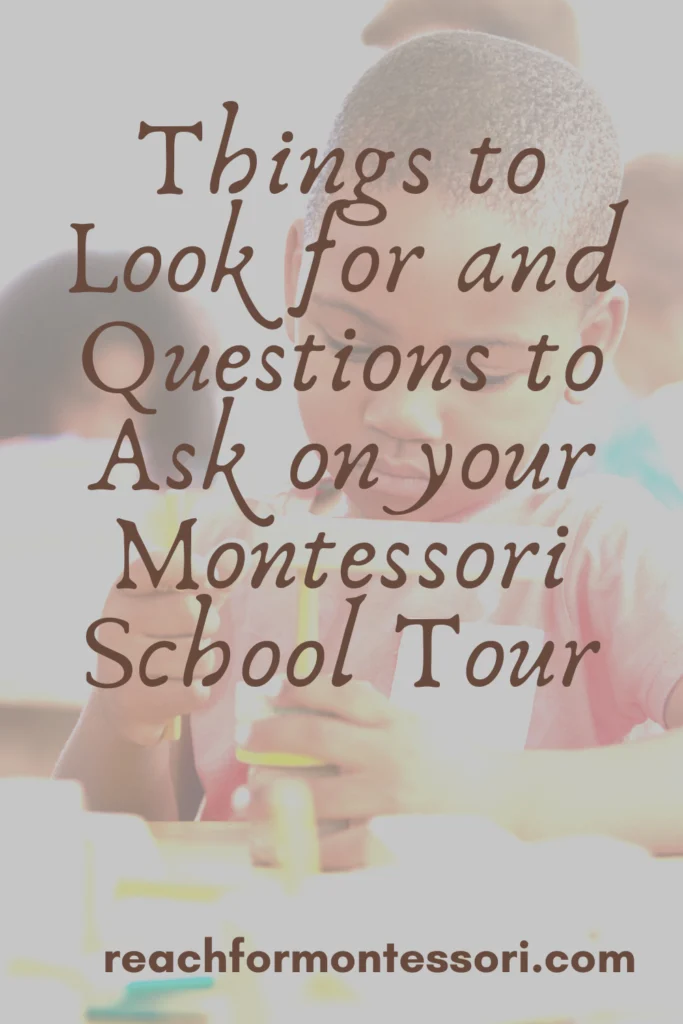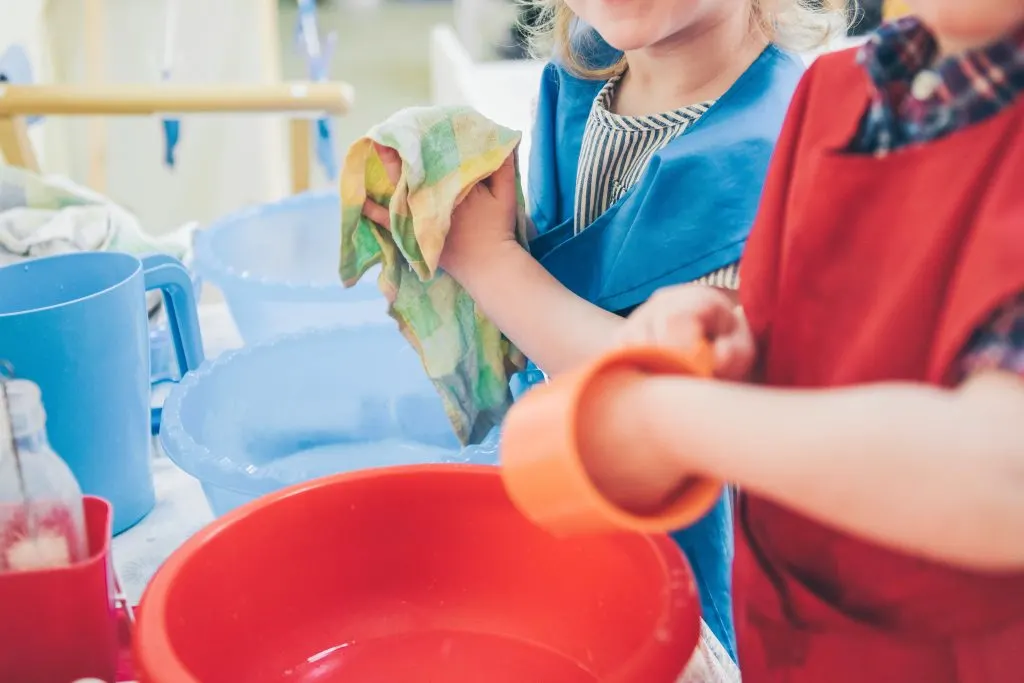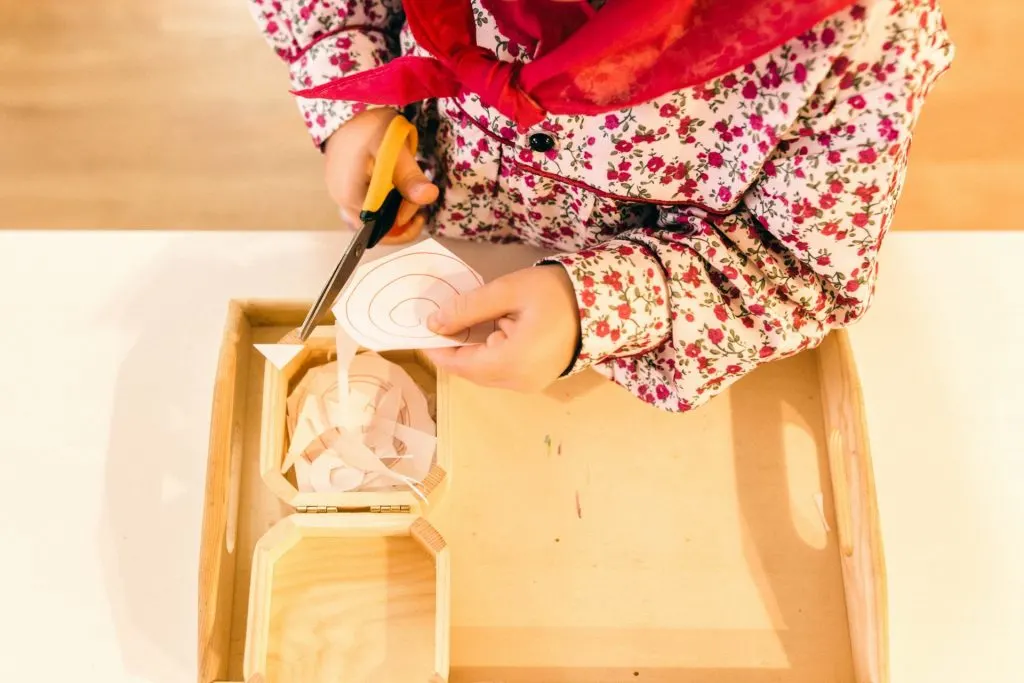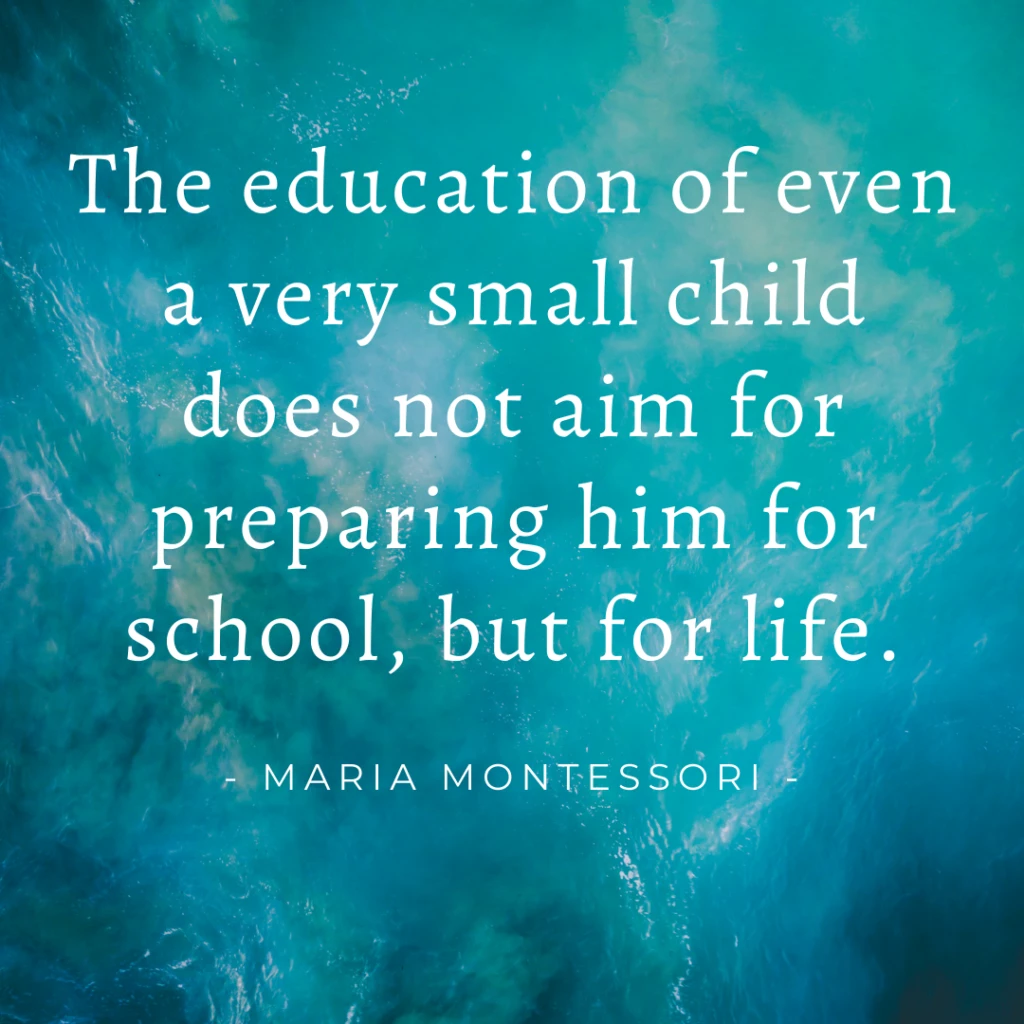Finding a good Montessori school is no easy task. Many schools and care centers use Maria Montessori's name but do not adhere to even the most fundamental principles of her Method. Here is a guide to helping you make the best choice when choosing a Montessori school.

What to look for in a Montessori school
When touring a Montessori school for the first time, there are some things to look for even before you get to the “Do you have any questions for us?” portion of the tour.
- Is the environment prepared and tidy?
- Are the children focused on their individual work, group work, or a presentation given by a guide?
- Are all the materials in good shape and in complete sets?
- Is there an outdoor area that contains gross motor equipment and an area for gardening?
- Are there accessible cubbies and coat racks at the entrance of the classroom?
- Is everything in the classroom child-size and accessible?
- Are the materials made of natural materials?
State regulations can sometimes prevent some aspects of a Montessori classroom from being “Montessori”.
If you notice something on your tour that doesn't seem as “Montessori” as you were expecting, it's always best to ask about it, as there is likely a great explanation available to you.
What questions to ask a Montessori school
Credentials
The two Montessori credentials most good Montessori schools will have are AMI (Association Montessori Internationale) and AMS (American Montessori Society).
There are other Montessori teaching credentials, however, AMI and AMS credentials ensure that the staff has had ample in-person training.
Most Montessori school administrators are aware of the differences in education quality between AMS/AMI-trained persons and those who went through training through IMC (International Montessori Council) or NAMC (North American Montessori Center).
(This is not to say that graduates of IMC, NAMC, or the like did not volunteer for extensive practicum or that they are not capable of being great Montessori guides.)
Also, are the guides credentialed for the age group they are working with?
A Montessori guide credentialed for elementary-aged children is best suited to working with elementary-aged children, and so on.
Each classroom should have a properly credentialed head teacher.

Staff understanding of Montessori
Getting a feel for each staff member's understanding and appreciation of Montessori is helpful when choosing a Montessori school.
Having a head teacher or guide who has a weak understanding of Montessori or a lack of appreciation and enthusiasm for what they do doesn't serve a classroom well.
Areas of deviation
There are some Montessori schools, even properly credentialed ones, that don't do every single thing in line with Montessori.
If you have strong feelings about your child getting an authentic Montessori experience, asking about deviations in work materials or teaching styles is important.
Handling of discipline
- What happens when a child mishandles the materials?
- How does the staff handle hitting or other aggressive behaviors?
- Are time-outs ever utilized?
Obedience and discipline are not “bad words” in Montessori, but Montessori guides help children work toward the goal of achieving self-discipline and joyful obedience.
Natural and logical consequences, co-regulation, and gentle guidance are standard behavior modification methods used in Montessori settings.
Peace corners are common in Montessori classrooms and should not be used for punitive purposes.
It's a good idea to ask your child's potential teacher how they utilize their classroom's peace corner.
With behavior, Montessori focuses on positive discipline, the development of emotional intelligence, and effective praise.

Staffing ratio
This is an important question to ask for 2 different reasons.
- You want your child to be safe.
- You want your child to have an authentic Montessori experience.
A good number of children per guide in a Montessori classroom is rather high; 20-30 (or more) children per guide in a primary classroom.
This is due to the way Montessori guides are trained, Dr. Montessori's observations on the learning experiences in larger class sizes vs smaller class sizes, and the fact some students will only be in the classroom for part of the day.
State regulations often limit class sizes, however. This is to accommodate safety regulations.
For the closest-to-authentic Montessori education for your child, ideally, you will be looking for a classroom on the upper end of the student-to-guide ratio.
What ages do they offer?
Many parents are happy with sending their children to a Montessori program for their primary years only.
Some parents, however, are looking to the elementary years and beyond in their education decisions.
If you want your child to get a Montessori education beyond the age of 5 or 6, it's a great idea to ask what age groups the school offers.
If classrooms beyond the primary age group are not available, staff may be able to point you in the direction of a better-suited Montessori school or even an elementary or middle school that aligns with Montessori.

Can I observe?
The majority of Montessori schools actually require a short period of observation for parents.
This gives the guides a chance to observe your child's interaction with the materials and the classroom.
It also gives you a chance to observe how a Montessori classroom works. Here are some things to look for:
- Interaction between the students (as opposed to announcements from the teacher toward the class)
- Children of different ages
- Varying levels of ability among the children are noticeable during their interactions with the material
- Concentration and order
- Children working independently from the teacher
- A teacher not centering themselves (observing in the background)
When choosing a Montessori school, if you are not automatically asked to come in for an observation, that is a red flag.
Unless the school can provide you with an acceptable reason for skipping this step, you should look elsewhere.
Expectations of parent
- What will my role be as a parent?
- What fundraisers are held throughout the school year to help purchase and maintain materials?
- Am I allowed to come in and share elements of my child's/my culture with the classroom?
Many Montessori schools appreciate a certain level of parental involvement.
This can be an enriching experience for parents, their children, and the whole classroom.
Clothing
Many Montessori schools choose to implement uniforms. If uniforms are not required, there may be a rule about children not wearing clothing that could be distracting to their classmates, such as clothing with sparkles or sequins or clothing with cartoon characters on it.
Montessori schools also usually have children wear slippers/house shoes during work time.
Finding a pair of comfortable house shoes that your child can put on and take off with ease will likely be a task assigned to you upon enrollment.
Children in Montessori programs often have outside time, even in the rain or snow.
It's a great idea to ask the staff if you should supply an extra set of shoes and clothes.

As you can see, there is a lot to consider when touring a Montessori school and interviewing the teachers and guides.
It's a great idea to type some of these questions up and jot down a few more while you're on your tour.
Montessori schools are very different from other daycare settings and preschools.
If anything you see on your tour seems out of the ordinary or if you have questions about the materials you notice that you're not familiar with, just ask.
A good Montessori school will have staff and administration that are knowledgeable and happy to answer any questions you have.
Have you toured a Montessori school before? If so, what was your experience?
Cheers and don't forget to subscribe!

Levi Armstrong
Monday 22nd of March 2021
Sue, I find it helpful to know that Montessori focuses on the child's emotional intelligence development and provides positive discipline and effective praise. I have a toddler, so this is an excellent read for a parent like me. Perhaps I should start looking around the city to see if there is a Montessori nearby that would be great for my child. Thanks.